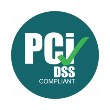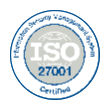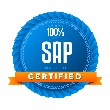In today’s rapidly evolving business landscape, accounts payable optimization has become a critical driver of operational efficiency and financial performance. As organizations face mounting pressure to streamline operations while maintaining supplier relationships, transforming accounts payable processes through strategic automation and supply chain finance solutions has emerged as a game-changing approach.
The Current State of Accounts Payable Efficiency
The accounts payable function has undergone significant transformation over the past decade. Over the past decade, finance departments have reduced costs by almost 30 per cent, according to McKinsey’s research. However, the focus has now shifted from mere cost reduction to achieving higher levels of effectiveness and strategic value creation.
Traditional manual accounts payable processes continue to plague many organizations with inefficiencies including delayed payments, duplicate invoices, and poor supplier relationships. These challenges directly impact cash flow management and supplier trust, making optimization not just beneficial but essential for competitive advantage.
Key Strategies for Accounts Payable Optimization
1. Automation and Digital Transformation
The foundation of modern accounts payable efficiency lies in comprehensive automation. Organizations are increasingly adopting AI-powered invoice processing systems that can handle everything from data extraction to approval workflows. Modern procurement transformation involves taking control of procurement needs with solutions like sourcing, procurement operations, supplier lifecycle management, and accounts payable management, as emphasized in leading consulting frameworks.
Implementation Focus Areas:
- Mobile approval capabilities
- Three-way matching automation
- OCR technology for invoice processing
- Electronic payment systems
2. Supply Chain Finance Integration
Supply Chain Finance has emerged as a powerful tool for optimizing accounts payable while strengthening supplier relationships. The FinTech Revolution is transforming how buyers and suppliers approach the supply-chain finance market, with new players commanding a significant portion of the value pool, according to industry analysis.
Companies like Vayana are at the forefront of this transformation, offering integrated supply chain finance solutions that enable organizations to optimize their accounts payable processes while providing suppliers with early payment options. Through Vayana SCF Platform, businesses can extend their payment terms while suppliers receive faster access to funds, creating a win-win scenario that improves working capital for all parties.
3. Supplier Relationship Management
Effective accounts payable optimization extends beyond internal processes to encompass comprehensive supplier relationship management. This includes establishing clear payment terms, implementing supplier portals for better communication, and creating transparent dispute-resolution mechanisms.
Best Practices Include:
- Standardized onboarding processes
- Real-time payment status updates
- Automated supplier communications
- Performance analytics and reporting
The Role of Technology in Modern Accounts Payable
Technology continues to reshape accounts payable processes, with 2025 expected to present significant opportunities for supply chain leaders to manage everything from cost optimization to risk mitigation. This technological evolution is particularly relevant for accounts payable optimization, where emerging technologies are reshaping traditional processes.
Artificial Intelligence and Machine Learning
AI-powered systems are revolutionizing accounts payable through predictive analytics, fraud detection, and intelligent document processing. These technologies enable organizations to identify payment optimization opportunities, predict cash flow needs, and automate complex decision-making processes.
Blockchain and Distributed Ledger Technology
While still emerging, blockchain technology offers significant potential for enhancing transparency and reducing fraud in accounts payable processes. Smart contracts can automate payment approvals and ensure compliance with contractual terms.
Supply Chain Finance: A Strategic Advantage
The integration of Supply Chain Finance with accounts payable processes creates significant strategic advantages. Organizations can leverage their strong credit ratings to provide suppliers with cost-effective financing while extending their own payment terms. This approach improves cash flow management while strengthening supplier relationships.
Leveraging Vayana’s SCF Solutions for Working Capital and Cost Optimization
Vayana’s comprehensive supply chain finance platform exemplifies this integration, offering end-to-end solutions that connect buyers and suppliers through technology-enabled financing options.
Leading corporates are achieving substantial working capital optimization and cost savings by leveraging Vayana’s supply chain finance solutions within their accounts payable framework.
Through Vayana’s integrated platform, companies are extending their Days Payable Outstanding (DPO) from traditional 30-45 days to 90-120 days, while their suppliers receive financing at competitive rates within 24-48 hours of invoice approval. This dynamic payment optimization enables corporates to free up significant cash reserves for strategic investments and operations. The platform’s real-time visibility into payables and supplier financing also enables CFOs to make data-driven decisions about cash deployment, turning accounts payable into a profit center rather than just an operational function.
Learn More with case studies here https://vayana.com/blogs/category/case-studies/
Implementation Roadmap for Accounts Payable Optimization
Phase 1: Assessment and Planning (Months 1-2)
- Current state analysis
- Technology requirements evaluation
- Stakeholder alignment and buy-in
- Vendor selection (consider platforms like Vayana for integrated solutions)
Phase 2: System Implementation (Months 3-6)
- Core system deployment
- Integration with existing ERP systems
- User training and change management
- Pilot testing with select suppliers
Phase 3: Optimization and Scaling (Months 7-12)
- Performance monitoring and optimization
- Supplier onboarding acceleration
- Advanced analytics implementation
- Continuous improvement processes
Measuring Success: Key Performance Indicators
Effective accounts payable optimization requires robust measurement frameworks. Critical KPIs include:
- Invoice processing time reduction
- Payment accuracy rates
- Supplier satisfaction scores
- Cash flow optimization metrics
- Cost per invoice processed
- Early payment discount capture rates
The Future of Accounts Payable
As we move forward, the accounts payable function will continue evolving toward greater automation, enhanced supplier collaboration, and strategic value creation. Organizations that embrace comprehensive optimization strategies, including supply chain finance integration through platforms like Vayana, will gain significant competitive advantages in terms of cash flow management, supplier relationships, and operational efficiency.
The convergence of accounts payable optimization with supply chain finance represents a fundamental shift in how organizations approach financial operations. By leveraging technology, strategic partnerships, and innovative financing solutions, businesses can transform their accounts payable processes from operational necessities into strategic assets that drive growth and competitive advantage.
Success in this transformation requires a commitment to technology adoption, process standardization, and strategic supplier relationship management. Organizations that invest in comprehensive accounts payable optimization today will be well-positioned to capitalize on emerging opportunities and navigate future challenges in an increasingly complex business environment.








